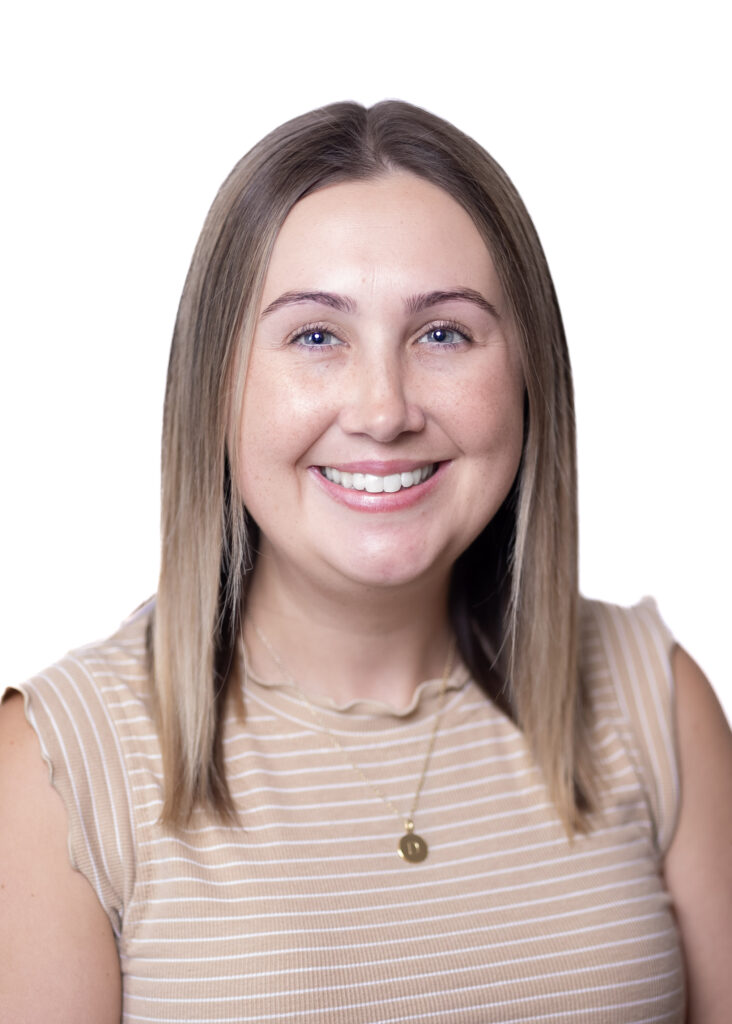
“Being a social worker means being a source of support and guidance. It means walking alongside people through their hardest chapters, and helping them realize they don’t have to carry it all on their own.”
For Denise Bohon, social work began with personal experience. Before she ever sat in a classroom studying systems theory or trauma-informed care, she was a high school student uncertain, trying to navigate life’s challenges, and figuring things out one day at a time.
What changed everything was the support of a few key adults, school social workers who showed up for her in quiet, consistent ways. “They helped me feel seen,” Denise remembers. “They helped me believe I could do more than just get by. I never forgot how that felt.”
That support didn’t just help her graduate, it shaped her future. Denise knew early on that she wanted to return the favor. That she wanted to step into the same kind of role and help others the way she had been helped.
The path to School Social Work
After earning both her undergraduate and graduate degrees from Millersville University, Denise began her professional career in mental health, working as a School-Based Therapist at Washington Elementary. There, she supported students through challenges ranging from grief and anxiety to housing instability and family transitions.
“It was a deeply meaningful role,” she says. “But what I found myself wanting was the ability to stay with students longer to walk with them through more than just the crisis moments.”
That desire led her to pursue a position as a school social worker at McCaskey East High School, where she could be present not just in emergencies, but throughout students’ day-to-day lives.
Now in her fourth year at SDoL, Denise has become a trusted presence on campus, someone who students seek out not just for support, but for perspective, problem-solving, and reassurance.
Graduation: more than a milestone
Each spring, Denise attends McCaskey’s graduation ceremony with a full heart. While others see caps and gowns, she sees the full arc of stories, moments that started long before the walk across the stage.
“These are students who have fought through so much,” she says. “Many have carried adult responsibilities since they were children. They’ve faced loss, instability, uncertainty and still, they’ve made it here.”
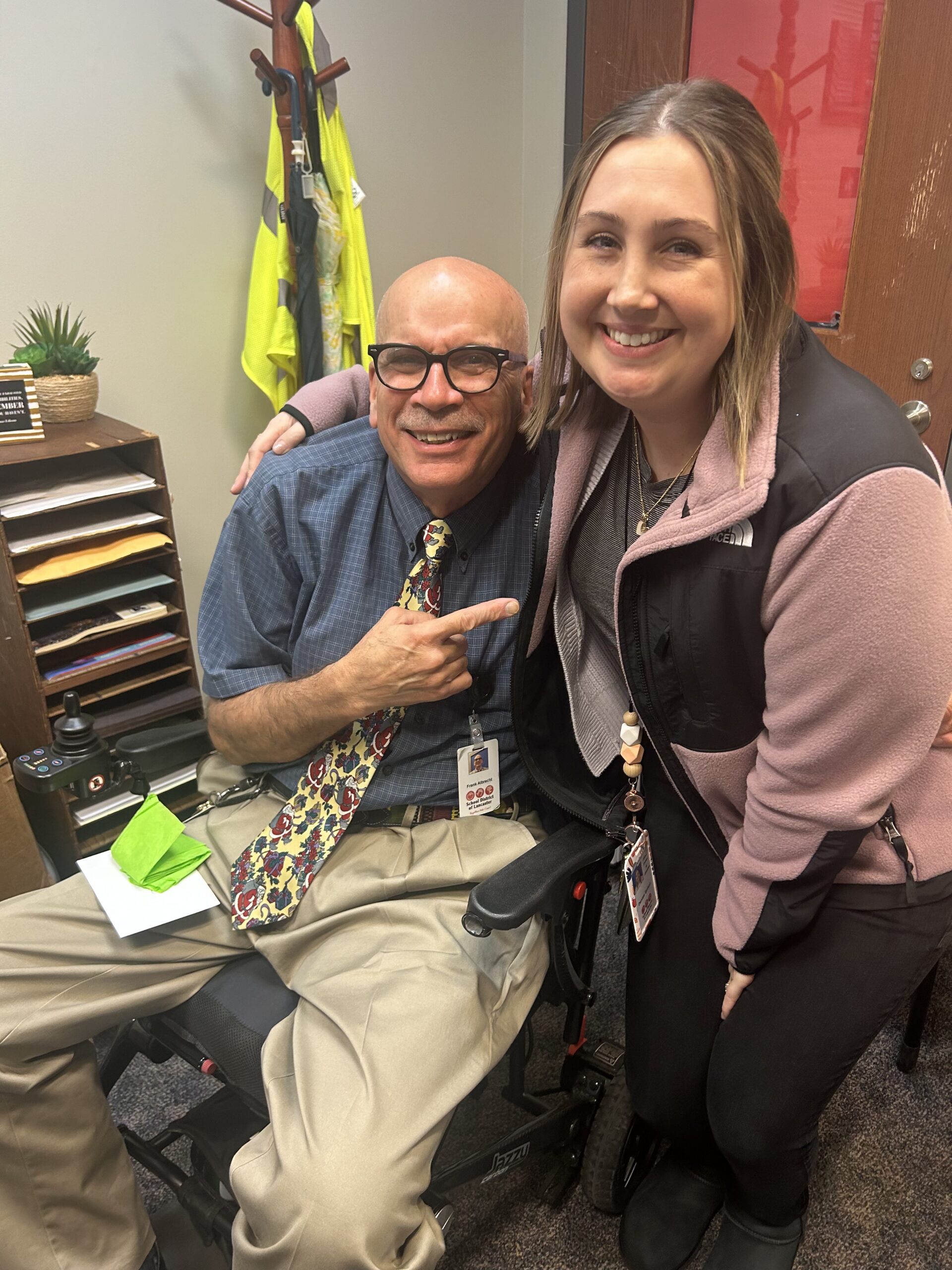
For Denise, graduation isn’t the finish line. It’s a celebration of persistence, relationships, and the day-to-day progress that few others get to see. She remembers the hallway check-ins, the hard conversations, the paperwork, the meetings, the quiet moments of encouragement. And when she sees those same students walking across the stage, it all comes rushing back.
“Sometimes they’ll stop by to say thank you,” she shares. “Sometimes I’ll get a message months later, telling me they’re working or in college or just doing okay. And that’s all I need. That’s everything.”
What keeps her coming back
There’s no one-size-fits-all day for a school social worker. One moment, Denise might be supporting a student who just lost a family member. The next, she’s sitting with a teen sorting through their college paperwork, or helping a family access food or housing.
Despite the complexity, she returns each day with the same focus: the students.
“What brings me back every day is the chance to help someone move forward,” she says. “To be the person who sits with them when things feel heavy, and to celebrate when something finally clicks.”
Over time, she’s learned how important it is to care for herself, too. “I’m able to do this work because I’ve learned how to pause, how to rest, and how to reach for support when I need it,” she says.
Her self-care is intentional. Denise finds peace in spending time with family, getting a full night’s sleep, and practicing the very tools she shares with her students: mindfulness, grounding, and remembering to breathe.
What it means to be a social worker
For Denise, the role of a school social worker is clear:
“It’s about building trust, advocating for students, connecting them with resources, and helping them believe they’re not alone in what they’re facing.”
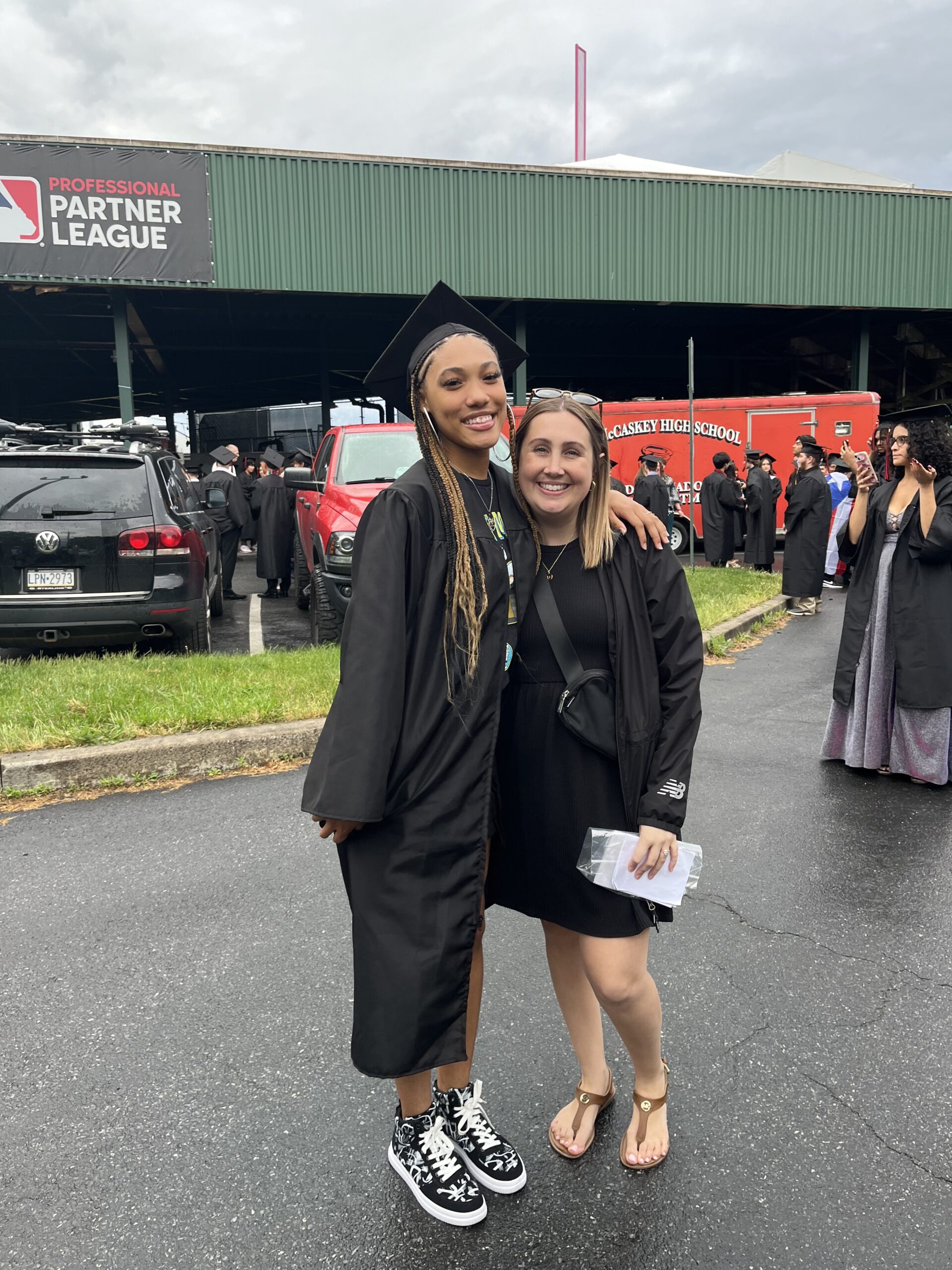
She doesn’t see herself as a fixer. She sees herself as a bridge. someone who connects families to community services, students to opportunities, and staff to a better understanding of what their students may be carrying.
It’s a role grounded in presence. Not the kind that takes center stage, but the kind that notices the student who’s unusually quiet. The kind that remembers someone’s trigger and makes sure there’s a safety plan in place. The kind that stays after hours to make one more call, or just to sit with a student until they’re ready to go home.
The power of a title
When the district officially shifted the job title from Student and Family Resource Specialist to School Social Worker, Denise felt a sense of affirmation.
“It means something to be called what you are. To have your training and licensure recognized. It helps families understand who they’re speaking to. And it helps students know that the support they’re receiving is grounded in real expertise. So often, our work happens behind closed doors. It’s not loud. But it matters.”
She believes that when schools and communities truly understand the role of a school social worker, more collaboration becomes possible and better support systems grow as a result.
Learning from the community
What Denise values most about working at SDoL is the depth of learning that comes from being part of such a diverse community.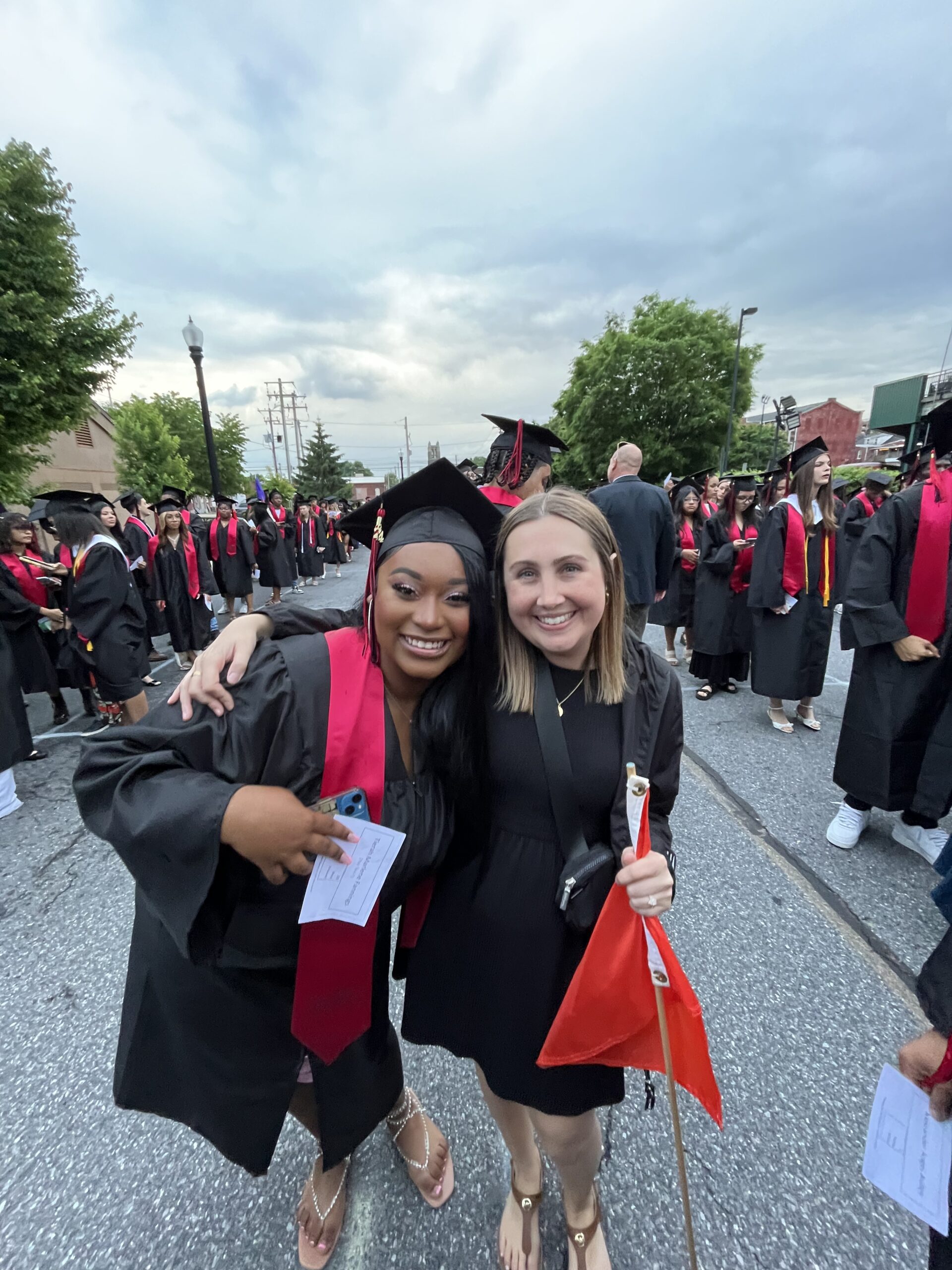
“I’ve worked in different places, but nowhere else have I had the opportunity to learn from so many students and families with different backgrounds, languages, and experiences,” she says. “It shapes how I approach my work. It makes me more thoughtful, more curious, and more aware.”
Every story she hears expands her understanding of how students move through the world and how best to support them in doing so.
When asked who inspires her, Denise is quick to mention the students themselves.
“I’ve watched students go through unimaginable things and still show up to school with kindness. That teaches me something.”
She also reflects on the legacy of Brother Frank Albrecht, a long-serving McCaskey staff member whose presence and leadership helped shape the culture of the school. “He was someone who led with integrity, humility, and a deep care for students,” she says. “His legacy continues to guide me.”
And then there’s Jane Goodall, the world-renowned primatologist and humanitarian, who inspired Denise as a child with her quiet strength and commitment to advocacy. “I got to meet her a few years ago and thank her in person,” Denise says. “She reminded me that even soft voices can make a lasting impact.”
Lifting up other women
Whether she’s mentoring young social workers, checking in with colleagues, or encouraging students to speak up, Denise sees her role as both collaborator and supporter.
“We are stronger when we work together,” she says. “I try to remind the women around me of their strength not by pushing them, but by standing beside them.”
That sense of community is deeply present in her day-to-day work. The social workers at SDoL often rely on each other, not just professionally, but emotionally.
“I’ve worked in places where we celebrated birthdays with favorite desserts, drove hours to support one another during family emergencies, and just sat together after hard days,” she says. “That kind of support changes how you experience this work.”
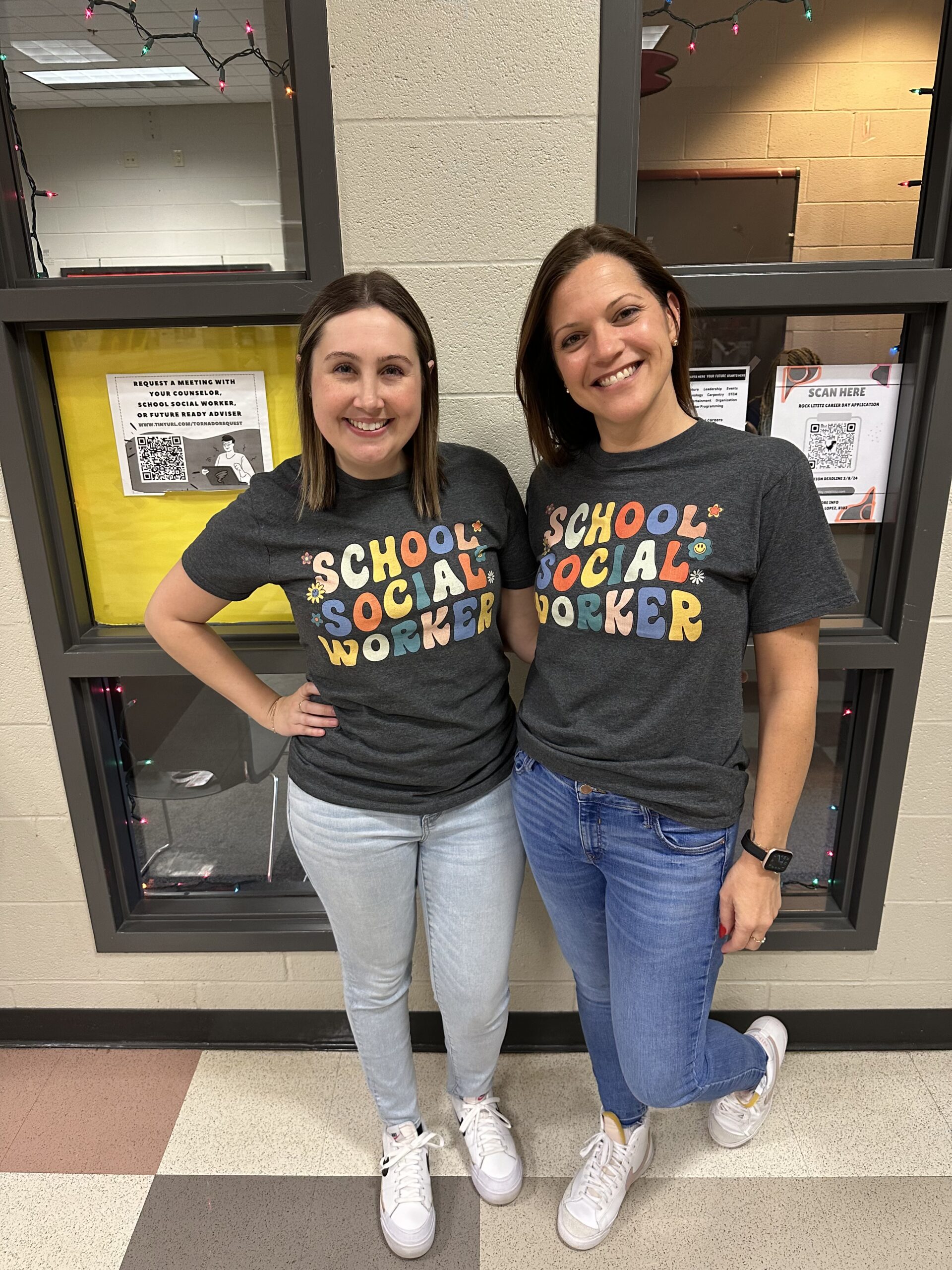
Advice for the next generation
Denise has a message for any young woman considering social work:
“Don’t give up. If this is the path that speaks to you, follow it, even when it feels difficult. Practice self-care early and often. Surround yourself with people who challenge you, support you, and remind you to laugh. And never forget why you started.”
Thank you, Denise
To Denise: thank you for bringing calm into chaos, clarity into confusion, and hope into places that need it. Thank you for offering guidance without judgment and presence without condition. Your work helps shape lives, and your compassion makes this district stronger.
